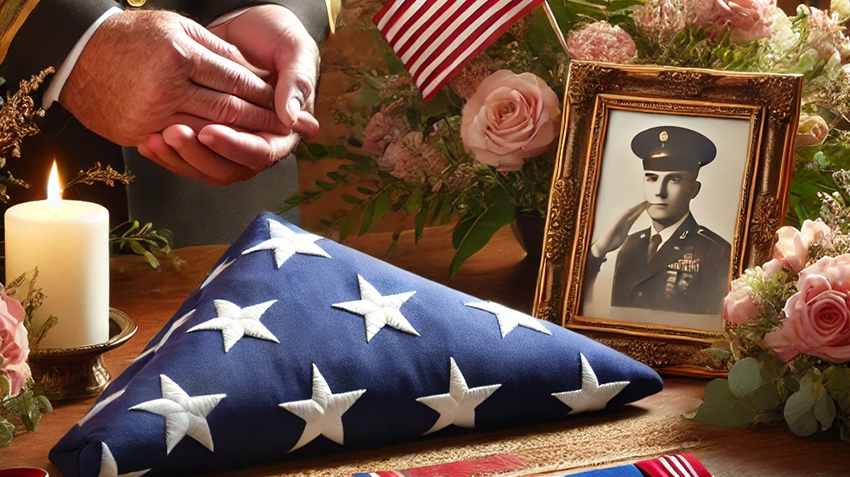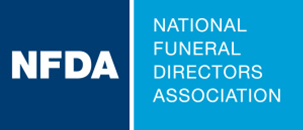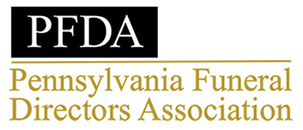
Losing a veteran loved one is a deeply emotional experience, and planning their final farewell can add to the stress.
For families, understanding the costs of cremation and funeral services is essential to making informed decisions that honor the veteran’s service without causing financial strain.
Planning a veteran’s cremation involves various considerations, from selecting a provider to coordinating with the Department of Veterans Affairs (VA) for available benefits.
This blog post breaks down the cost of cremation and service, explores VA benefits, and offers guidance on planning a meaningful service. By gaining a clearer understanding of these elements, families can ensure that their loved one’s legacy is honored with respect and dignity.
Breaking down the cost of cremation and service for veterans
When planning a cremation for a veteran, it’s essential to consider various costs to have a clear understanding of what to expect. While cremation is generally more affordable than traditional burial, the costs can vary depending on several factors, such as location, services chosen, and any additional memorial options. Here are a few things to consider about the cost of cremation and service for veterans:
1. Basic Cremation Costs
The basic cremation package typically includes essential services such as transportation of the body, the cremation process itself, and a basic container for the ashes. On average, the cost of a direct cremation in the United States ranges from $1,000 to $3,000. However, these prices can fluctuate based on the location. For example, larger metropolitan areas often have higher cremation costs, while smaller towns or rural areas may offer more affordable options.
2. Additional Costs
Beyond the basic cremation package, families often encounter additional expenses depending on the type of service they wish to hold. If a viewing or memorial service is planned, there may be extra charges for embalming, venue rental, and catering.
Additional costs might also include transportation fees if the veteran’s remains need to be transferred across state lines or to a specific VA National Cemetery. Moreover, the cost of an urn can vary widely, ranging from as little as $10 to several thousand dollars, depending on the material and design chosen.
Understanding the benefits provided by the Department of Veterans Affairs (VA)
One of the most significant advantages of being a veteran is the array of benefits provided by the Department of Veterans Affairs (VA) to help cover funeral and cremation costs. Understanding these benefits can alleviate some of the financial burdens associated with a veteran’s cremation. Here’s what you need to know:
1. VA Burial Allowance
The VA offers a burial allowance to help offset the cost of cremation or burial services. As of 2024, the VA provides up to $2,000 for burial expenses for veterans who died due to service-related causes. For non-service-related deaths, the VA offers up to $828 for burial and funeral expenses, with an additional $828 if the veteran was hospitalized by the VA at the time of death.
Families can apply for these benefits by submitting VA Form 21P-530. This assistance can significantly reduce the out-of-pocket expenses for families during a challenging time.
2. National Cemetery Benefits
Veterans and their eligible family members are entitled to burial in a VA National Cemetery at no cost. This benefit includes the gravesite, opening and closing of the grave, perpetual care, and a government-provided headstone or marker. If a veteran is cremated, they can still be buried in a columbarium or interred in a grave at a VA National Cemetery. The government covers the entire cost of these services, offering substantial financial relief for families.
3. Other VA Benefits
In addition to the burial allowance and National Cemetery benefits, the VA provides other services to honor the veteran’s memory. This includes a Presidential Memorial Certificate signed by the current president and a burial flag that can be used to drape the casket or accompany the urn during the service.
Military honors, such as the folding of the flag and the playing of taps, can also be arranged through the VA or local veteran organizations at no additional cost. These tributes serve as a meaningful way to recognize the veteran’s service and provide comfort to grieving families.
Planning a cremation service for a veteran
Planning a cremation service for a veteran requires careful consideration of both logistical and emotional aspects. Here’s how to navigate this process smoothly:
1. Choosing a Cremation Provider
When selecting a cremation provider, it’s important to choose one familiar with handling veteran funerals. Some funeral homes specialize in working with military families and are well-versed in the VA’s procedures and benefits. Always ask about any special packages or discounts available for veterans, as this can help further reduce costs.
2. Coordinating with the VA
To ensure that the veteran’s family receives all the benefits to which they are entitled, coordination with the VA is crucial. Required documentation includes the veteran’s discharge papers (DD Form 214), death certificate, and any receipts for funeral expenses.
Families should start this process as early as possible to avoid delays in receiving benefits. The VA can also guide families through the steps of arranging military honors and other commemorative services.
3. Personalizing the Service
Personalizing the cremation service is a way to honor the veteran’s life and service uniquely. Consider incorporating military honors, such as a rifle salute or a presentation of the burial flag.
Families may also choose to have the veteran’s cremated remains placed in an urn that reflects their military service or interred in a VA National Cemetery, where they can be honored alongside their comrades. These personalized services provide an opportunity to celebrate the veteran’s life and create lasting memories for their loved ones.
Comparing cremation costs with traditional burial costs
For many families, cremation is a more affordable and practical option compared to traditional burial. Traditional burial costs, including a casket, grave plot, and headstone, can easily exceed $7,000.
In contrast, cremation provides a more cost-effective alternative, with total expenses often ranging from $2,000 to $5,000, depending on the level of service chosen.
Considering environmental and practical elements
Beyond cost, cremation is often preferred for its environmental benefits and practicality.
For veterans, the option of inurnment in a National Cemetery ensures that their service is honored without the environmental impact of a full burial. This choice allows families to honor their loved one’s legacy while also considering their ecological footprint.
Frequently Asked Questions
Below are some commonly asked questions to consider:
1. Can a veteran’s spouse or dependents be cremated and interred with them?
Yes, a veteran’s spouse or dependents can be cremated and interred with the veteran in a VA National Cemetery. The VA provides burial benefits for eligible family members, including the opening and closing of the grave and perpetual care. This ensures that the veteran’s family can be laid to rest together.
2. Are there any religious considerations for veteran cremation services?
Veteran cremation services can be tailored to accommodate specific religious beliefs and practices. Many cremation providers are experienced in handling religious ceremonies and can offer services that respect the veteran’s faith. It’s important to communicate any religious preferences during the planning process.
3. Can a veteran’s cremated remains be scattered in a National Cemetery?
No, scattering cremated remains is not permitted in VA National Cemeteries. However, cremated remains can be interred in a columbarium or buried in a plot within the cemetery. Families who wish to scatter the remains may choose a different, meaningful location, such as a private property or a designated scattering garden.
Speak to a funeral home about the cost of cremation and services
Planning a cremation and funeral service for a veteran involves numerous decisions, from understanding costs to navigating the benefits provided by the VA. By carefully considering each aspect and working closely with a trusted cremation provider and the VA, families can ensure that their loved one’s service is honored with dignity and respect.
While the financial aspects of a funeral can be daunting, the benefits available to veterans can significantly ease this burden, allowing families to focus on remembering and celebrating the life of their loved one.
Speak with a funeral home that provides professional funeral services to learn more about the cost of cremation and service for veterans.



